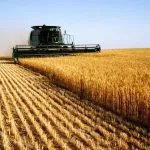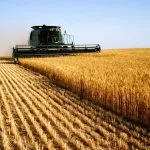Three Socially Responsible Dividend Stocks to Buy Benefit from Fertilizer
By: Paul Dykewicz,
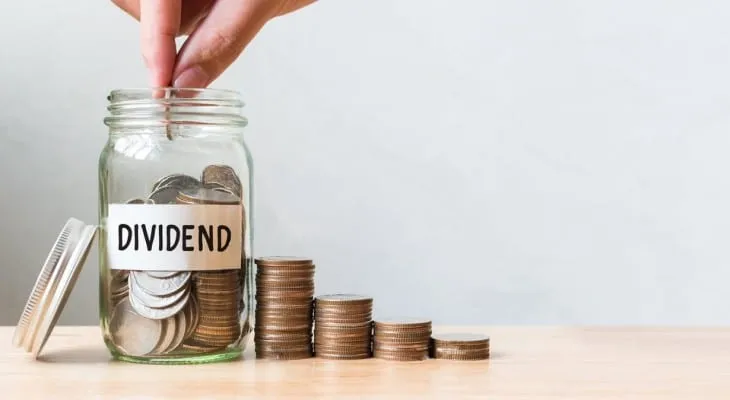
Three socially responsible dividend stocks to buy benefit from fertilizer use, featuring two large providers of the seasonal commodity and a lesser-known stock that is expected to outperform the market.
Socially responsible investing (SRI) targets positive social change and these three companies are poised to provide profitable returns to investors. These three socially responsible dividend stocks offer a way to pursue sustainable investing to protect the environment and fend off climate change by adopting environmental, social and governance (ESG) policies.
Those policies are intended to measure the sustainability and ethical impact of investing in a business or a stock. Fertilizer and agriculture are among the sectors that have been engaged in sustainable solutions for their businesses not only to safeguard the environment, but to serve customers and to offer good ESG investing opportunities.
Department of Agriculture Funding Could Lift Three Socially Responsible Dividend Stocks to Buy
The U.S. Department of Agriculture (USDA) is aiding additional fertilizer production for American farmers to address rising costs by providing $250 million through a new grant program this summer to boost independent, innovative and sustainable American fertilizer production to supply American farmers. To address growing competitive concerns in the agricultural supply chain, USDA launched a public inquiry seeking information about seeds and agricultural inputs, fertilizer and retail markets.
Supply chain disruptions from the global pandemic to Russia’s President Vladimir Putin’s “unprovoked war against Ukraine” have shown the importance of investing in this key link in the U.S. agricultural supply chain, said Agriculture Secretary Tom Vilsack, in a statement.
ESG is a subset of non-financial performance indicators that include ethical, sustainable and corporate government issues such as making sure there are systems in place to ensure accountability and to manage a corporation’s carbon footprint. Another potential lift for fertilizer investments is a recent agreement aimed at temporarily halting Russia’s blockade of shipments from Ukraine that are crucial to avert worsening famine conditions in Africa.
Shipping Pact to Transport Food, Fertilizer and Grain Could Help Stop Enflaming Famine
A pact, arranged by the United Nations (UN) and Turkey, gained agreement from Russia to let ships leave certain Ukrainian ports on the Black Sea under military escort, with cargo inspections, to ensure only food, fertilizer or grain is carried, not any other commodities. The agreement, if honored by consistently by Russia, would create a protected shipping lane to help alleviate global food shortages for Ukraine’s customers who include some of the world’s poorest nations, including Eritrea in Africa.
Corn has been the key export since the agreement took effect last month but it typically is used for animal feed or to produce biofuel ethanol rather than as food for humans. In addition, Russia showed the pact’s vulnerability by firing missiles at Ukraine’s biggest seaport hours after consenting on July 22 to allow grain to be transported from there.
Another potential breach by Russia occurred on Aug. 17 when its missile strikes allegedly hit a recreation center and several other buildings in Ukraine’s port city of Odesa, as well as the Petro Mohyla Black Sea National University in Mykolayiv. To alleviate hunger, the United States agreed to give more than $68 million to help the United Nations “purchase, move and store” up to 150,000 metric tons of Ukrainian wheat in response to the global food crisis, the U.S. Agency for International Development announced Tuesday, Aug. 16.
The donation would provide 23,000 metric tons of wheat to ease a humanitarian crisis in the Horn of Africa, where a historic drought has contributed to putting millions of people on the brink of starvation. In Africa, more than 18 million people are enduring extreme hunger in Ethiopia, Somalia and Kenya, according to the World Economic Forum.

Chart generated using Stock Rover. Activate your 2-week free trial now.
Mosaic Joins Three Socially Responsible Dividend Stocks to Buy in Benefitting from Fertilizer
Mosaic Company (NYSE: MOS), a dividend-paying, Fortune 500 company headquartered in Tampa, Florida, mines phosphate, potash and urea. The largest U.S. producer of potash and phosphate fertilizer, Mosaic, aiming to meet key ESG targets by 2025, operates through business segments such as international distribution and Mosaic Fertilizantes.
Support for Mosaic can help to counter Russia as a large global producer of potash, a key crop nutrient that is used in agricultural production. Strong growth in Mosaic’s year-over-year earnings per share (EPS) and rising prices for fertilizer from reduced supply out of Russia led to a surge in the value of MOS call options recently recommended by Jim Woods in his High Velocity Options trading service.
Woods specifically recommended MOS April 14 $50.00 call options in his High Velocity Options advisory service to produce a 128.72% gain. In March, Woods advised that his subscribers take profits after the options soared in value by 150% within a week. Those triple-digit-percentage gains show how call options can be a huge money maker.
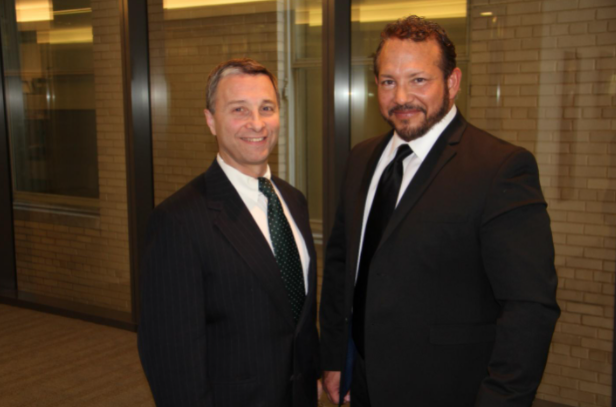
Paul Dykewicz interviews Jim Woods, of the Successful Investing and Intelligence Report newsletters, as well as High Velocity Options.
Three Socially Responsible Dividend Stocks to Buy as Putin’s Policies Harm Fertilizer Supply
Fertilizer manufacturers appear likely to profit from Russia’s continuing attack against Ukraine, said Bryan Perry, leader of the Cash Machine investment newsletter. Perry, whose trading services include Breakout Options Alert, acknowledged there may be “demand destruction” in the energy sector, but not in the global food supply.
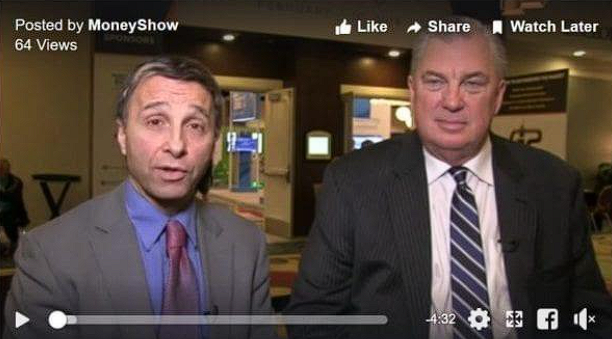
Paul Dykewicz interviews Bryan Perry, who heads the Cash Machine newsletter.
Wheat, corn and soybean prices have climbed since the military attack on Ukraine by Russia, Perry continued. Putin’s war and the sanctions it triggered as other countries sought to sway Russia’s leader to stop his attack of Ukraine have helped CF Industries Holdings, Inc. (NYSE: CF), a dividend-paying manufacturer and distributor of agricultural fertilizers, including ammonia. Much further gains could be ahead, Perry opined.
Three Socially Responsible Dividend Stocks to Buy, Despite Distribution Costs Increasing for Fertilizer
However, the company, based in Deerfield, Illinois, a suburb of Chicago, also faces increased distribution costs, especially for transportation. Those extra costs likely will be shifted to customers by the manufacturer.
In addition, the expense of producing nitrogen fertilizers is highly dependent on the cost of natural gas, which is the principal raw material and primary fuel source used in ammonia production at the company’s manufacturing sites. For many global producers, more than 70% of the total cost to produce ammonia is based on the expense of natural gas.
The cost of natural gas varies significantly between geographic locations. European customers may see their financial burden grow, since natural gas prices have been surging there, as Russia has cut the export of that commodity in an apparent attempt to squeeze energy-needy nations.
CF Industries, a global manufacturer that also provides hydrogen and nitrogen products, published a 2021 annual report and sustainability reporting materials. The reports provide insight into the company’s clean energy strategy and progress in 2021 towards its ESG goals.

Chart courtesy of www.stockcharts.com
Yet another fan of CF Industries Holdings is Mark Skousen, PhD, who recently recommended it profitably in his Five Star Trader advisory service. Skousen follows commodities closely as the head the Forecasts & Strategies investment newsletter that also includes commodities when they are trending up.

Mark Skousen, a descendant of Benjamin Franklin, meets with Paul Dykewicz.
AGCO Makes List of Three Socially Responsible Dividend Stocks to Buy
AGCO Corporation, a Duluth Georgia-based designer, manufacturer and distributor of agricultural equipment, offers a path to profit from the rising demand for fertilizer, said Michelle Connell, president and owner of Dallas-based Portia Capital Management.
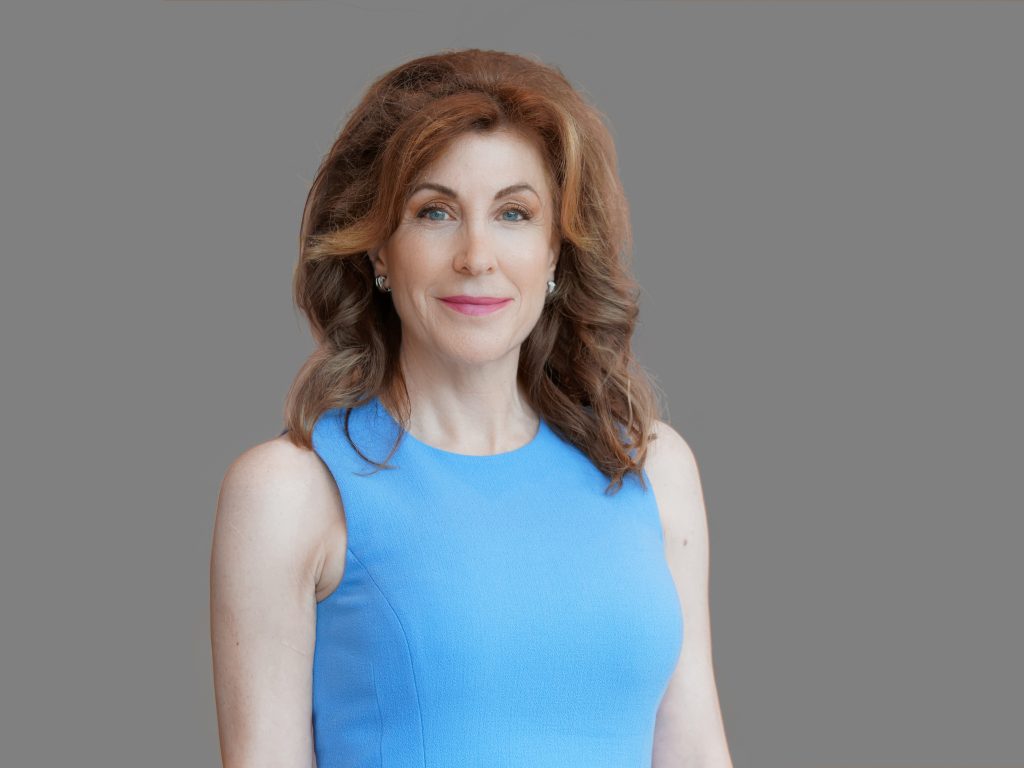
Michelle Connell heads Dallas-based Portia Capital Management.
Sustainability-driven technology growth offers a roadmap that AGCO is taking in the right strategic direction, according to a recent research report by Chicago-based brokerage firm William Blair & Co. The investment firm’s analysts attended AGCO’s Sustainable Technology event in Germany, which included a discussion on growth opportunities such as Fendt globalization, precision agriculture and aftermarket sales growth.
AGCO offers products centered around sustainability and a regulatory outlook that includes a “Green Deal” in Europe, according to William Blair & Co. The company is on the “right path” toward providing customers with high-tech solutions to address the future economics and regulatory environment of farming, the analysts wrote.
“Ultimately, the longer-term growth for ag is being driven by the need for farmers to grow more and use fewer inputs/resources, which is a function of the regulatory environment, private investment, an increased focus on sustainability and the economic environment for growers,” wrote Lawrence De Maria, the lead analyst at William Blair & Co. on AGCO. The company has proven to be adept at providing commercial offerings that have short payback periods while enabling compliance, he added.

Chart courtesy of www.stockcharts.com
Three Socially Responsible Dividend Stocks to Buy Include One with 30% Upside
Connell said she put AGCO through one of her financial screening tools and it showed the stock possessed “very strong fundamentals, as well as momentum.” She indicated the share price has upside of 30% from current levels.
“Thus, I would classify it as a growth and value play,” Connell told me.
JP Morgan’s analytical team also likes AGCO and described it as a strong food insecurity play. The JP Morgan analysts’ upside 12-month target is 15% from the current level.
A key challenge for the company is its need to produce enough machinery during the second half of 2022, since it appears to be manufacturing at capacity. Therefore, JP Morgan believes that the company’s revenue guidance for the back half of this year is quite conservative.
Connell Counsels Caution about AGCO’s Concentration of Sales in Europe
Connell counseled that her main concern is that AGCO’s largest revenue region is the European Union (EU), accounting for more than 50% of the company’s total sales. The EU is facing a severe recession, greater difficulties with power generation this winter and now the loss of the Rhine River as a means of transporting goods, she added.
One of these factors could negatively effect AGCO’s ability to produce or deliver its equipment before the end of 2022, Connell cautioned.
However, William Blair & Co. reported its main takeaways from its meeting in Germany included: 1) growth opportunities are tracking ahead of schedule and can provide $4.30-plus in incremental earnings per share through 2025, 2) the AGCO tech stack and retrofit-first approach addresses key technologies and differentiation, and will fit within the coming EU regulatory environment, 3) and AGCO’s portfolio and roadmap is well positioned to address the needs of growers for electrification, precision fertilizer, precision planting, autonomy, etc. Future portfolio adjustments, such as divestitures, are possible and aligned around the core business, while factory run-rates have improved following a ransomware incident, the investment firm added.
Ag Fund Ranks Offers Alternative to Three Socially Responsible Dividend Stocks to Buy
Despite the horrors of war, investors have a chance to profit from the jump in agriculture prices and other commodities through the futures markets. Instead of buying futures directly, investors can invest in diversified agricultural commodities through Invesco DB Agriculture (DBA), an agricultural exchange-traded fund (ETF) recommended by Bob Carlson, a pension fund chairman who also leads the Retirement Watch investment newsletter. Investment funds such as DBA hold stocks such as Mosaic and CF Industries that increasingly are trying to adhere to ESG policies.

Pension Fund Chairman Bob Carlson, leader of Retirement Watch, meets with Paul Dykewicz.
Ukraine’s democratically elected President Volodymyr Zelensky has been seeking to rally his countrymen since Russia’s Feb. 24 invasion to defend their nation as he has obtained guns, advanced weapons and ammunition from its allies. The cost in life and limb has been high for the Ukrainians and the Russians. The invading troops have included many conscripts, who, in some cases, have resisted fighting against Ukrainians.
With many commodity prices already rising substantially since Russia’s invasion, there may still be more such pressure in the months ahead in the fertilizer market due to what is happening in Ukraine. Oil, natural gas, grains and some metals may face further price hikes, Carlson cautioned.

Chart courtesy of www.stockcharts.com
COVID Cases Do Not Cause Collapse of Three Socially Responsible Dividend Stocks to Buy
COVID-19 cases and deaths can interfere with supply chains and affect demand for products such as fertilizer, particularly as prices for the seasonal commodity climb. As a result, investors must monitor the latest trends.
U.S. COVID-19 deaths climbed for the fifth consecutive week by more than 3,000 to 1,037,916, as of Aug. 16, according to Johns Hopkins University. Cases in the United States rose 794,047 in the past week to reach 92,343,316, showing a slight jump in the rate of increase from the previous week. America still holds the dreaded distinction as the country with the largest number of COVID-19 deaths and cases.
Worldwide COVID-19 deaths in the last week increased 16,857, down from 18,318 last week, but up from 16,513 the prior week, totaling 6,440,713, as of Aug. 16, according to Johns Hopkins. Global COVID-19 cases increased 5,661,128, down more than 7 million each of the past three weeks, reaching 592,131,424 by Aug. 16.
Roughly 79% of the U.S. population, or 26,323,837, have received at least one dose of a COVID-19 vaccine, as of Aug. 17, the CDC reported. Fully vaccinated people total 223,684,995, or 67.4%, of America’s population, according to the CDC. The United States also has given at least one COVID-19 booster vaccine to 108.2 million people.
The three socially responsible dividend stocks to buy offer an alternative path to profit in the face of Russia’s continuing assault on Ukraine’s pre-war economic strength in the agricultural arena. The ESG trend is expected to keep rising, despite the highest U.S. inflation in 42 years, consecutive 0.75% Fed rate hikes in June and July and other potential increases in the months ahead aimed at curbing U.S. consumer prices that jumped 8.5% and producer prices that climbed 9.8% in the past 12 months.


